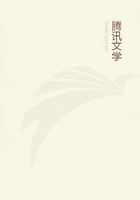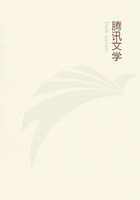What if we are here like birds in a cage, with wings, able to fly but not flying about the cage; and what if, when we are dead, we shall indeed be out of the cage, but without wings, having never made use of such as we had while we had them? Think for a moment what we should be without the senses!"
"We shall be able at least to see and hear, else where were the use of believing in another world?"
"I suspect, my lord, the other world does not need our believing in it to make a fact of it. But if a man were never to teach his soul to see, if he were obstinately to close his eyes upon this world, and look at nothing all the time he was in it, I should be very doubtful whether the mere fact of going a little more dead, would make him see. The soul never having learned to see, its sense of seeing, correspondent to and higher than that of the body, never having been developed, how should it expand and impower itself by mere deliverance from the one best schoolmaster to whom it would give no heed? The senses are, I suspect, only the husks under which are ripening the deeper, keener, better senses belonging to the next stage of our life; and so, my lord, I cannot think that, if the will has not been developed through the means and occasions given in, the mere passing into another condition will set it free. For freedom is the unclosing of the idea which lies at our root, and is the vital power of our existence. The rose is the freedom of the rose tree. I should think, having lost his brain, and got nothing instead, a man would find himself a mere centre of unanswerable questions."
"You go too far for me," said his lordship, looking a little uncomfortable, "but I think it is time to try and break myself a little of the habit--or almost time. By degrees one might, you know,--eh?"
"I have little faith in doing things by degrees, my lord--except such indeed as by their very nature cannot be done at once. It is true a bad habit can only be contracted by degrees; and I will not say, because I do not know, whether anyone has ever cured himself of one by degrees; but it cannot be the best way. What is bad ought to be got rid of at once."
"Ah, but, don't you know? that might cost you your life!"
"What of that, my lord! Life, the life you mean, is not the first thing."
"Not the first thing! Why, the Bible says, 'All that a man hath will he give for his life'!"
"That is in the Bible; but whether the Bible says it, is another thing."
"I do not understand silly distinctions."
"Why, my lord, who said that?"
"What does it matter who said it?"
"Much always; everything sometimes."
"Who said it then?"
"The devil."
"The devil he did! And who ought to know better, I should like to ask!"
"Every man ought to know better. And besides, it is not what a man will or will not do, but what a man ought or ought not to do!"
"Ah, there you have me, I suppose! But there are some things so damned difficult, that a man must be very sure of his danger before he can bring himself to do them!"
"That may be, my lord: in the present case, however, you must be aware that the danger is not to the bodily health alone; these drugs undermine the moral nature as well!"
"I know it: I cannot be counted guilty of many things; they were done under the influence of hellish concoctions. It was not I, but these things working in me--on my brain, making me see things in a false light! This will be taken into account when I come to be judged--if there be such a thing as a day of judgment."
"One thing I am sure of," said Donal, "that your lordship will have fair play. At first, not quite knowing what you were about, you may not have been much to blame; but afterwards, when you knew that you were putting yourself in danger of doing you did not know what, you were as much to blame as if you made a Frankenstein-demon, and turned him loose on the earth, knowing yourself utterly unable to control him."
"And is not that what the God you believe in does every day?"
"My lord, the God I believe in has not lost his control over either of us."
"Then let him set the thing right! Why should we draw his plough?"
"He will set it right, my lord,--but probably in a way your lordship will not like. He is compelled to do terrible things sometimes."
"Compelled!--what should compel him?"
"The love that is in him, the love that he is. He cannot let us have our own way to the ruin of everything in us he cares for!"
Then the spirit awoke in Donal--or came upon him--and he spoke.
"My lord," he said, "if you would ever again be able to thank God; if there be one in the other world to whom you would go; if you would make up for any wrong you have ever done; if you would ever feel in your soul once more the innocence of a child; if you care to call God your father; if you would fall asleep in peace and wake to a new life; I conjure you to resist the devil, to give up the evil habit that is dragging you lower and lower every hour. It will be very hard, I know! Anything I can do, watching with you night and day, giving myself to help you, I am ready for. I will do all that lies in me to deliver you from the weariness and sickness of the endeavour. I will give my life to strengthen yours, and count it well spent and myself honoured: I shall then have lived a life worth living! Resolve, my lord--in God's name resolve at once to be free.
Then you shall know you have a free will, for your will will have made itself free by doing the will of God against all disinclination of your own. It will be a glorious victory, and will set you high on the hill whose peak is the throne of God."
"I will begin to-morrow," said the earl feebly, and with a strange look in his eyes. "--But now you must leave me. I need solitude to strengthen my resolve. Come to me again to-morrow. I am weary, and must rest awhile. Send Simmons."















